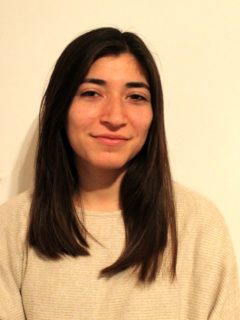Rocío Jazmín Sabbatella
Rocío Jazmín Sabbatella
Gast Studentin, National University of Mar del Plata, Argentinien
Development and optimization of a bioink based on oxidized alginate hydrogel for bioplotting
Betreuer: Jonas Hazur, Prof. Aldo R. Boccaccini
Fabrication of scaffolds by employing additive manufacturing technologies is being widely used in tissue engineering to restore, replace or regenerate defective tissues [1]. Within the main biofabrication techniques being used, extrusion-based bioprinting, inkjet printing and laser-induced forward transfer are some of the most widely used due to their versatility. The development and formulation of printable inks for 3D bioprinting is a major challenge in the field of biofabrication. Hydrogels are the materials of choice for developing bioinks because they can provide a suitable matrix for the attachment, growth and proliferation of cells. Oxidized alginate (OA)-based hydrogels have drawn considerable attention to develop biodegradable scaffolds for tissue engineering applications because of their tailorable degradation rate in comparison to pure alginate [2]. The aim of this project is the development of oxidized alginate based bioinks suitable for extrusion-based bioprinting. A complete characterisation of the new bioinks will be carried out. In addition 3D printing of a synthetic polymer to achieve a supporting, rigid structure will be also investigated [1]. This project is carried out in the framework of the I.DEAR students exchange program between National University of Mar del Plata (UMDP), Argentina, and our Institute, funded by the Argentine-German University Centre (CUAA-DAHZ). Supervisor of the project in Argentina is Dr. Gustavo Abraham (INTEMA), UMDP.
[1] T. Zehnder et al., Fabrication of Cell-Loaded Two-Phase 3D Constructs for Tissue Engineering, Materials (Basel) 9 (2016): 887.
[2] S. Reakasame and A. R. Boccaccini, Oxidized Alginate-Based Hydrogels for Tissue Engineering Applications: A Review, Biomacromolecules Biomacromolecules, 19 (2018) 3–21.

